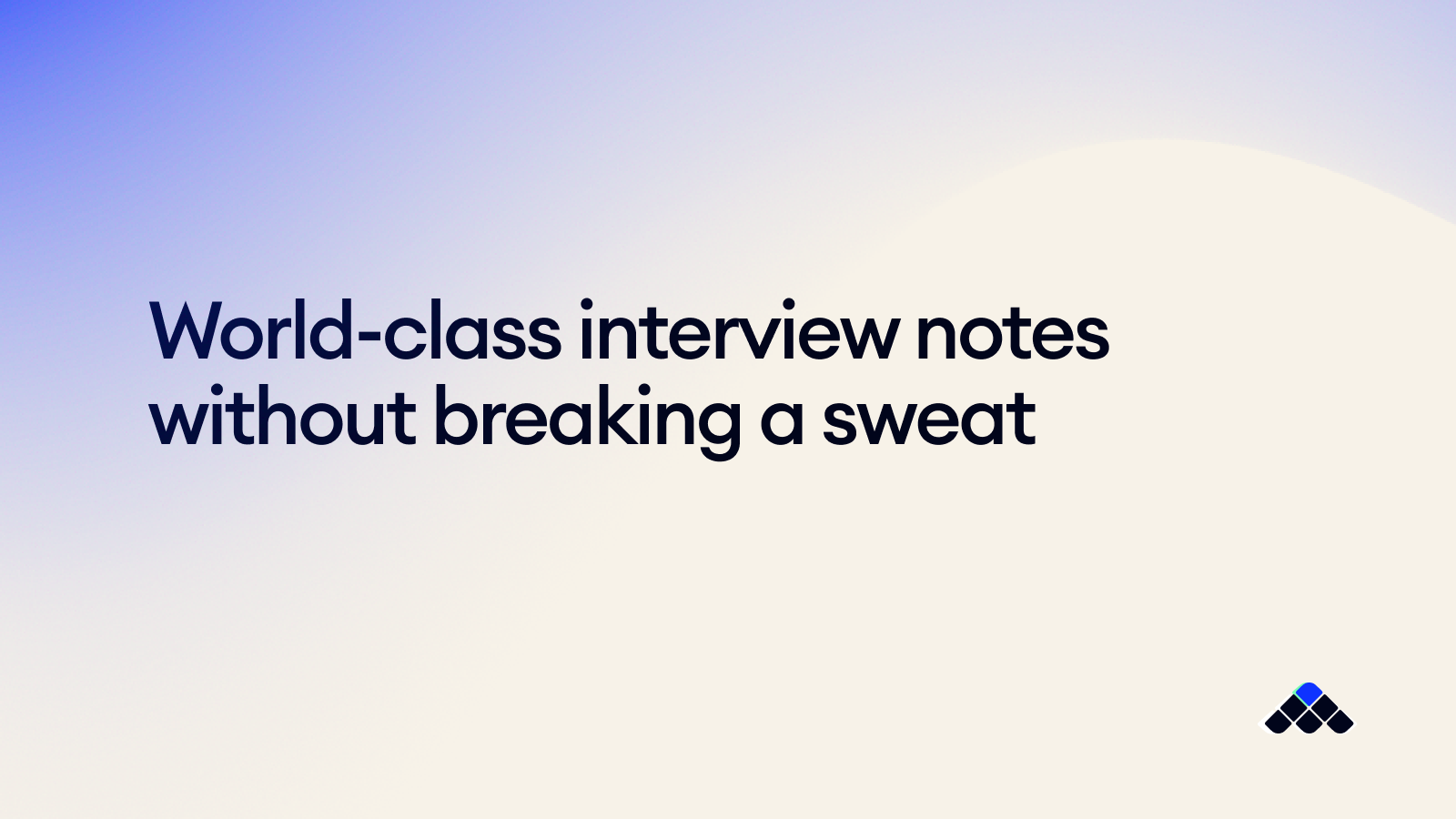As a recruiter, taking good notes during interviews is an essential but painful part of the job.
It's essential because it's THE record of what was discussed. While memories fade and feelings can deceive, your notes and written synthesis of what actually happened in the interview won't. At the same time, providing high-quality notes is one of the most powerful ways to maintain a strong working relationship with the hiring managers you partner with, and demonstrate to them your expertise. (More on how we can help you build trust with HMs here.) This is crucial if you're trying to become a trusted advisor to the hiring team and really impact hiring decisions.
It's painful because writing excellent notes requires a focus that you often can't afford—not if you want to give every candidate a stellar experience, and get through an already hectic day. You either end up piecing together slapdash feedback in the time between meetings, or spend your precious time with the candidate as little more than a scribe: smiling vacantly and nodding as you furiously type up both what they say AND your opinions in real-time.
Here's how you can write world-class interview notes painlessly, while keeping candidate experience front and center.
1- Focus on your synthesis, not on writing what is said
The biggest areas of value you — as a recruiter — bring to the screening stage of the interview process is when you:
- Disqualify poor-fit candidates so valuable time is not wasted downstream.
- Qualify candidates (especially non-obvious candidates) that are a good fit.
- Share concise insight with the hiring manager so she can understand your perspective and increasingly trust you over time.
These are impossible to achieve reliably if you're too busy focusing on writing down a summary of everything the candidate says. So don't even try to. Instead, focus on the flags you pick up, the areas for further investigation, and your judgment on their suitability for the role.
2- Leave note-taking to AI
Artificial Intelligence is far better than any human at summarizing large amounts of data. That includes conversational data.
But interviews, and the notes we require off the back of them, are different and unique:
- There are specific points of importance across every interview (salary expectations, right to work, location) that only a purpose-built AI can be respectful of.
- There are specific expectations about where these notes end up (the ATS) and who has access to them (recruiters, hiring managers).
- There are specific formats in which notes need to be written up in order to fit in with an agreed scorecard or rubric.
All of this means that adopting a note-taker dedicated to interviews is required if you're to meaningfully increase the quality of the notes being provided, and help move the right candidates through the pipeline more quickly. Metaview is one such tool, and is the first of its kind.
3- Curate, don't create, your summary and recommendation
By the end of the interview, you now have your synthesis of the candidate and the objective evidence concisely summarized by Metaview. Creating your scorecard and recommendation becomes a simple task of curating the most salient points from these two sources, often taking just 2-3 minutes. (We’ve shared more about what makes an impactful scorecard here.)
This is a game changer when compared to the old way of doing things: trying to make sense of scrappy, manual interview notetaking at the end of a long day. Or writing up interview notes from scratch based on your memory of the conversation.
The results
This process results in a much higher-quality scorecard, a more thoughtful recommendation on next steps, and a better candidate experience. It also enables better collaboration with HMs, and opportunities to improve the feedback you're receiving as a recruiter about the candidates you're putting through. So not only is your life easier, your calibration improves, and so does your pipeline efficiency as a result. In fact, Metaview customers improve time-to-hire by up to 30%.
So if you're struggling to take notes manually, and to write up high-quality feedback that shows you at your best, Metaview provides the perfect solution. If you'd like to try Metaview on your next interview, get in touch today.


